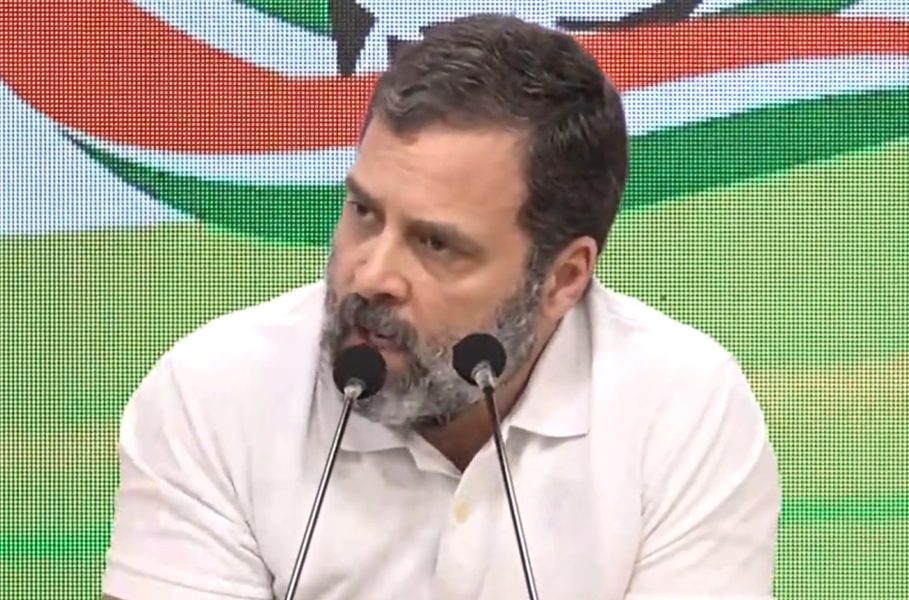
Rahul Gandhi to appeal against conviction in defamation case in Surat court on Monday

Congress leader Rahul Gandhi, who was recently disqualified from the Lok Sabha after being sentenced to two years in prison in a 2019 criminal defamation case, will challenge his conviction and sentencing in the Surat sessions court in Gujarat on Monday.
The Congress leader will be present in the sessions court to file the plea challenging a metropolitan court’s order which sentenced him to two years in jail, party sources said. “Rahul will reach the sessions court in Surat to file an appeal at around 3 pm,” said his lawyer Kirit Panwala. Senior Congress leaders will also be in Surat when Rahul arrives on Monday afternoon, party sources said.
Watch: Rahul Gandhi vacates Tughlaq Lane residence of 18 years
The court of Chief Judicial Magistrate HH Varma in Surat had on March 23 convicted Rahul and sentenced him to two years in jail in a 2019 criminal defamation case filed against him over his Modi surname remarks.
It had held 52-year-old Gandhi scion guilty under Sections 499 and 500 of the IPC. The court had also granted him bail and suspended the sentence for 30 days to appeal in a higher court. Rahul was present in the court when it had pronounced the verdict in the case.
The former Congress chief was on March 24 disqualified from the Lok Sabha following his conviction by the Surat court in the case. Following his disqualification, Rahul would not be able to contest elections for eight years unless a higher court stays his conviction and sentence.
Also read: Another ‘Modi surname’ case: Patna court summons Rahul Gandhi
The case was filed against Rahul on a complaint by BJP MLA and former Gujarat minister Purnesh Modi for the Congress leader’s alleged remarks – “How come all thieves have Modi as the common surname?” Rahul, who had served as an MP from Wayanad in Kerala, made the remarks while addressing a rally at Kolar in Karnataka on April 13, 2019 during the Lok Sabha election campaign.
The sentence of two years invited his disqualification from the membership of Parliament under provisions of the Representation of the People Act, 1951. The RP Act holds that an MP or a MLA convicted for any offence and sentenced to imprisonment for not less than two years shall be disqualified from the date of conviction.
(With Agency inputs)

